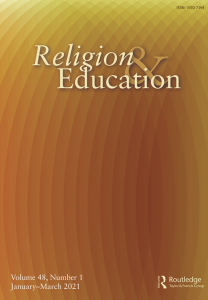 By Brian J. Grim & Paul Lambert (2021) Religious Literacy in Business, Religion & Education, 48:1, 57-73, DOI: 10.1080/15507394.2021.1877521
By Brian J. Grim & Paul Lambert (2021) Religious Literacy in Business, Religion & Education, 48:1, 57-73, DOI: 10.1080/15507394.2021.1877521
This article shows why religious literacy is important for the global economy and the businesses within it. Religion impacts the workplace and the marketplace, coworkers and partners as well as customers and clients. Religious populations are dramatically outgrowing nonreligious populations worldwide, especially so in emerging markets where Hindu, Muslim, Buddhist and Pentecostal Christian populations are growing. At the same time there is a global countervailing trend of rising restrictions on freedom of religion and belief.
At a macro level, such restrictions threaten the health and growth potential of the global economy. At a micro level, companies tone deaf to religion will be less successful in an increasingly religious world and marketplace than companies that are faith aware. Companies that are in touch with religious dynamics are usually those that have become faith friendly workplaces, embracing religion and belief as part of their overall equity, diversity and inclusion initiatives.
There are specific practices that companies can take to advance religious literacy in the workplace that will align with the trends in the marketplace and empower employees to contribute their fullest to their employers. Religious literacy for business is not primarily about having knowledge of religious beliefs and practices, although that can be helpful. It is more about having an understanding of how religion impacts the workplace and the marketplace, coworkers and partners as well as customers and clients. This is true at both macro and micro levels. At macro levels, national and global economies thrive where religious freedom exists.
At a micro business level, companies that practice religious accommodation and recognize religious diversity see better results in the key indicators that impact the bottom line. In this article, we will demonstrate why religious literacy leads to better business environments at the macro and micro level by looking at religion’s role in business, current status of religious literacy and protections in the global economy and within businesses, implications of religious literacy and persecution levels, and how specific businesses are addressing religion today.
Access the full article here.
